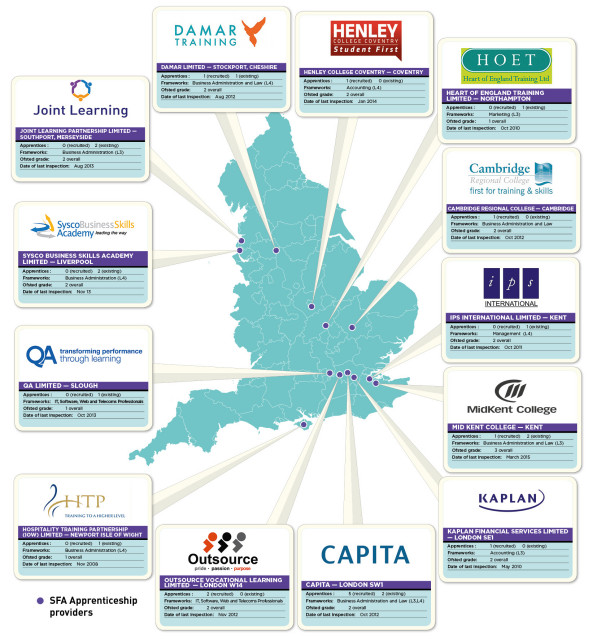On the third Monday of every month Dr Sue, Holex director of policy and external relations, answers your questions, backed by the experience of almost a decade as principal of Canterbury College, in addition to time served in senior civil service posts at central government departments covering education and skills.
Question 1:
As an employer governor in a college that is successful with apprenticeships, I am keen to understand more about the new system (especially the levy) and how digital vouchers will work. What are your views?
I am very excited about the policy and the chance to stabilise apprenticeship funding through the levy for ever.
Yes, it will have teething problems, but these will not be unsurmountable
When it was announced last year, I said it was a brave step and the government should be applauded for taking it and I haven’t changed my mind.
It puts the apprenticeship route into the mainstream and should allow it to flourish and take its rightful place alongside the degree progression route.
Our role is to galvanise all our stakeholders behind the programme.
Yes, it will have teething problems, but these will not be unsurmountable and we need to work with the implementation team in BIS to ensure a smooth as possible transition.
What we must not do as a sector is start to talk the scheme out of court (as has been done with some other great initiatives) by a constant blowing up of small issues to something greater than they are.
We need to keep this policy and not give any reason for it to be overturned. Future apprentices need a world class programme and we need the levy to secure their future.
New implementations guidance is being prepared by BIS and will be out shortly.
I would use that guidance as a hook to ask (through your chair) that the college provides a brief for you describing how they are going to implement the policy and how they are going to prepare for it, including working with employers over the changes.
Question 2:
I have attended several briefings about localism and devolution but am unclear what happens when my combined authority receives the adult education budget. Could you explain please?
The concept is that those combined authority areas who have been successful in agreeing a devolution deal with the Treasury that has a skills element will, by 2018, be in charge of how skills funding will be spent.
For these deals, skills funding is defined as the funding in the adult education budget plus some Department for Work and Pensions (DWP) programme funding, it does not cover apprenticeships or 16-18 education.
…we don’t want another destabilising period through tendering
The intention is that each area must meet a set of readiness conditions and demonstrate they are able to determine the needs of their area and have a commissioning process in place.
We don’t know yet what the actual process will be.
Each devolution area is determining how they will operate.
We expect it will be the LA/combined authority with the LEP that will be the commissioner and the contracting authority, and as such is subject to the requirements of public contract regulations 2015.
Once the funding is theirs, it is down to them how they interpret the regulations in relation to education and training. An LA may (as BIS does) decide to fund a college under a grant arrangement to enable them to deliver their statutory function.
If so, they are not delivering a service under the terms of Public Contracts Regulations 2015, removing the need to go out to competitive tendering.
As yet that level of detail is not yet known and my advice would be to get involved in developing the commissioning document and try to introduce the concept of co-constructing and working in partnership.
By 2017, the sector should have completed areas reviews and we don’t want another destabilising period through tendering out the adult education budget. It is in all our interests to ensure we develop our plans and commissioning process collectively.
Question 3:
I have just returned to being a governor at a college and was surprised to find we still have a principal’s report. Is this normal practice?
I am not a great advocate of principal’s reports that cover everything from the principal’s views (often or not negatively biased) on recent government policy announcements, a visit by a local MP, staff changes and substantive matters such as progress on targets all in the same paper.
…progress should be measured through a previously agreed dashboard
From reviewing best practice in both the public and private sector, I believe most matters are important enough to warrant they own paper which has been constructed to provide clear advice on options, risks and sets out appropriate recommendations for governors.
Also, progress should be measured through a previously agreed dashboard (or similar process) that covers all the key priority areas and not an add on to principals generic paper.
However, some college boards and principals are wedded to the principal’s reports and use them to provide an update on key issues.
The risk with this approach is that it is sometimes tempting to take decisions without the all the facts or advice being on the table.
I suggest you ask your clerk whether the board has recently reviewed and refreshed its reporting structures.
If the board hasn’t done that recently, then ask the chair whether the clerk could review reporting processes and provide alternative options.

Question 4:
My college is in wave two of the area review process and we seem to be resigned to merging. Looking at the implementation process, although the Merger B process seems easier, I wonder in the long-term whether a Merger A solution would allow us to get to the end point much quicker?
There are benefits in both approaches and I agree with you that the Merger B process does seem to be easier and has been the most favoured process in the past.
But, although it creates the new legal status quickly, it does often gives rise to issues around takeovers with one culture being dominant — legacy issues often take longer to solve and if the new board is made up of governors from the two previous colleges then often there is much harping back to the past which is not unexpected but is not helpful.
However, if one college is outstanding, it is likely their working methods and behaviours are the ones that need to be adopted throughout by the other partner/s and therefore Merger B is probably the right process.

The Merger A process where colleges come together to make a brand new single college needs the permission of the Secretary of State, but that shouldn’t put anyone off as the area review process is advocating mergers and it is the current government policy.
Those looking at new structures should not shy away from a Merger A type merger — coming together as a single new college, with new name, allows for creative and innovative thinking and development of how the new college should operate from day one, creates a refreshed approach to governance which could include group structures and payment of chairs, and can be used to excite and motivate all staff and stakeholders behind a new concept, especially if the new structure can attract industry brands and sponsorship.
Dr Sue Pember is director of policy and external relations at HOLEX






